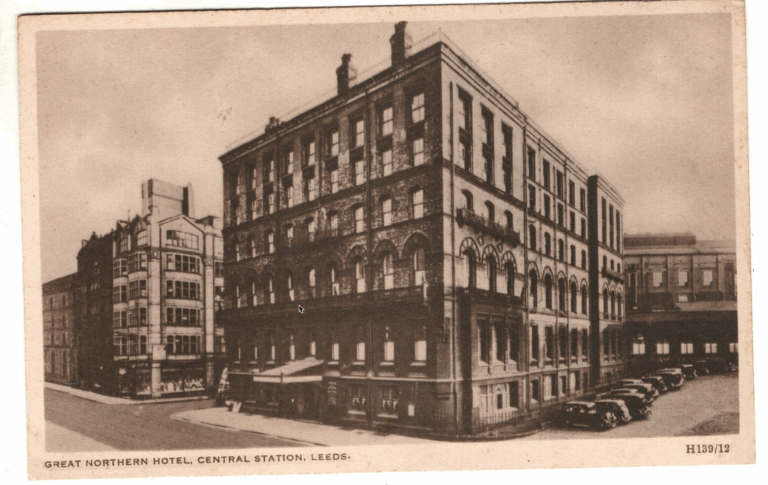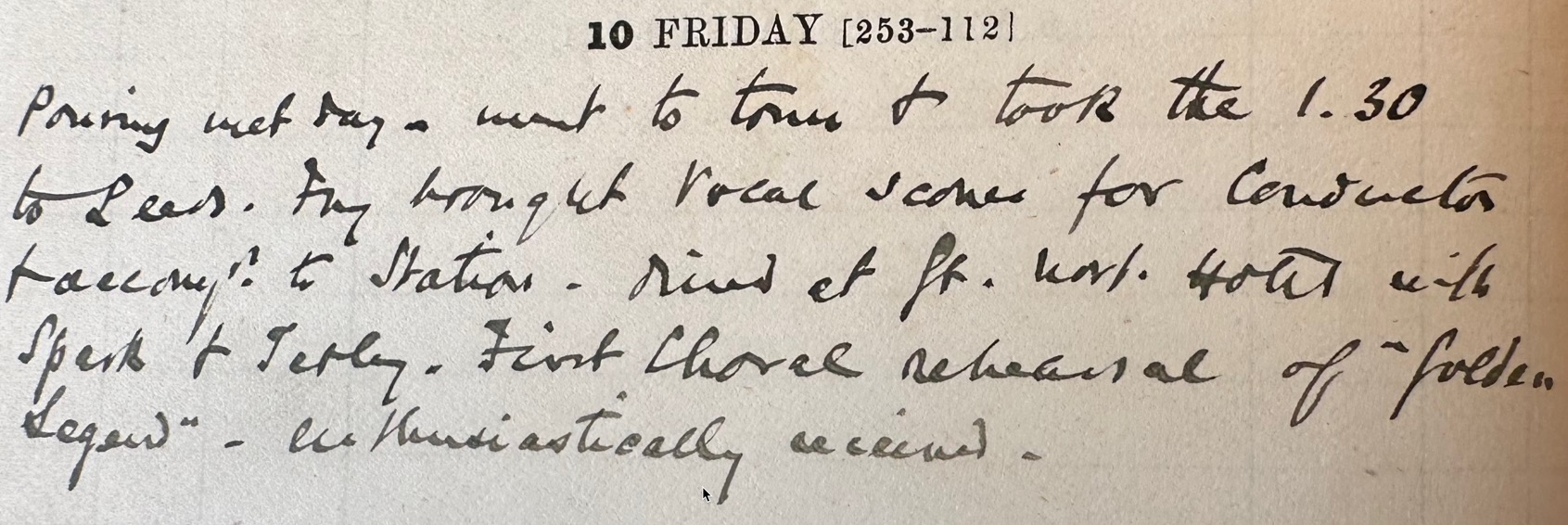September 10, 1886
Pouring wet day – went to town & took the 1.30 to Leeds. Fry brought vocal scores for conductor and [accompanists] to Station – dined at [Great Northern] Hotel with Spark & Tetley. First Choral rehearsal of “Golden Legend” – enthusiastically received.
It’s 1886, a year for the Leeds Triennial Musical Festival. Arthur Sullivan is not only the featured conductor of the festival, he is also premiering his latest composition, the cantata The Golden Legend. On this day, he’s in rehearsal.
Of course the Great Northern Hotel had “American elevator to all floors”. 😉 Spark & Tetley were on the Leeds Festival committee, Spark being Frederick Robert Spark and Tetley (probably) being George. Spark was the “Honorary” (that is, unpaid) Secretary of the festival, and had been for a long time.
The Golden Legend is a cantata, which is considered by some to be Sullivan’s finest serious work. As a young composer, Sullivan had made his name producing works for regional festivals. If you scan his list of “serious” pieces, you’ll find almost all of them were composed for festivals. But this is 1886, Sullivan is now a West End star (this is right after The Mikado), and he hasn’t written a work for a festival since 1880’s The Martyr of Antioch (also for Leeds).
At this point, Sullivan has been working on The Golden Legend for four months and a half, having begun on April 4. Scoring began on June 10 (“awfully tedious and slow work” — June 12), but the work didn’t keep Sullivan from Epsom or Ascot races. On July 4 he “bought all the Manton yearlings of the Duchess [Caroline Beresford, Duchess of Montrose] for 9000 guineas” (£9450, or about £1.5M today). He sold them the next day.
He also visited Lund & Blockley, the clockmakers he hired to produce the unique bells used in the cantata. Where are those bells today?


